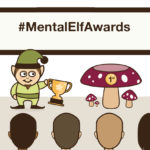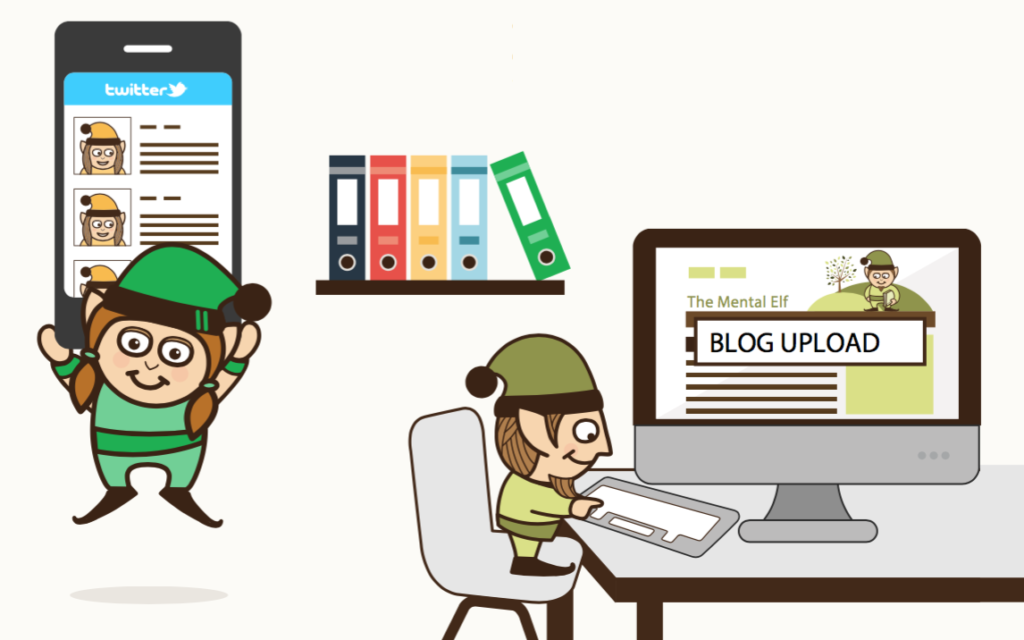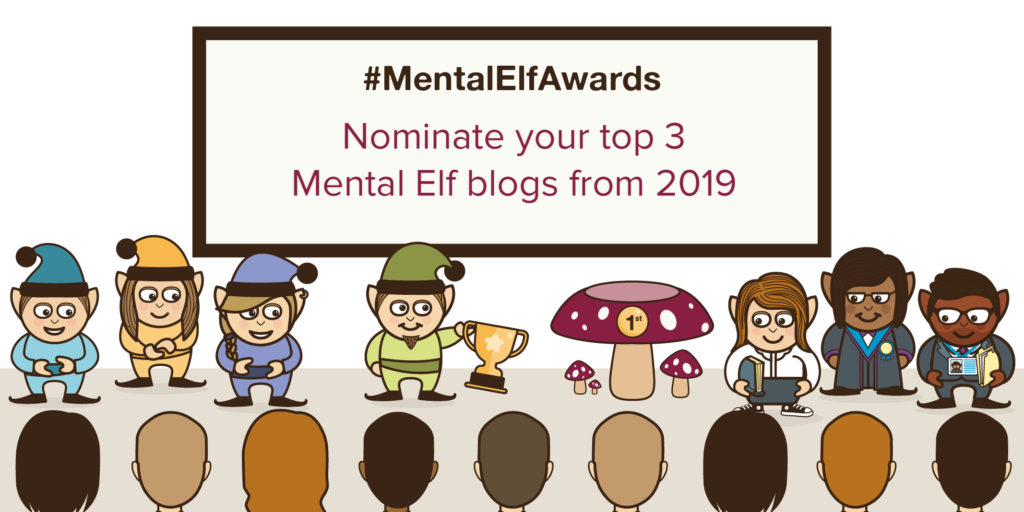
Last week we launched the brand new #MentalElfAwards, which recognise excellence in mental health research. We began by asking you to nominate one mental health research paper published in 2019 that you feel has the best chance of moving science forward and improving the lives of people living with mental health difficulties. Thanks to everyone who has sent us their nominations so far, and keep them coming!
This week we’re focusing on blogs. We want you to tell us which three Mental Elf blogs really impressed you in 2019. We published 145 blogs last year, so that’s quite a big task if you haven’t read them all and made notes (you have been making notes right!?). We’ve thoughtfully whittled down the list to 38 blogs which we (the Mental Elf team) feel really deserve your attention.

Tell us which 3 blogs from last year you liked the most. Nominate now!
Best Mental Elf blog published in 2019
Here’s the shortlist so you can remind yours(elf). When you’re ready, please nominate your top 3:
- “It doesn’t mean they aren’t after you”: sexual minorities and paranoia. Sarah Carr
- “Mens sana in corpore sano”: outdoor activities can shape the body and mind. Francesca Bentivegna & Dafni Katsampa
- Are antidepressants safe? A new umbrella review of observational studies suggests they are, but we need more accurate data. Andrea Cipriani & Anneka Tomlinson
- Can we screen-and-treat victims of terror attacks? Nia Oxburgh
- Cannabis use in the developing brain: evidence from a recent cross-sectional meta-analysis. Joe Barnby
- Compulsory Community Treatment does not reduce readmissions or length of stay in hospital. John Baker
- Compulsory detention under the Mental Health Act: significantly more likely if you come from a BAME or migrant group. Ian Cummins
- Depression in young people: are we researching what matters most? Tamsin Ford
- Disability rights, mental health treatment and the United Nations #RonR2019. Alex Ruck Keene
- High suicidality among people experiencing domestic abuse: findings from a mixed methods Refuge study #VAMHN. Roxanne Keynejad
- How should we assess suicide risk in mental health services, or should we stop doing it? Vishal Bhavsar
- iCBT for panic disorder. UCL Psychiatry MSc Students
- In adults with major depression, antidepressants may increase the risk of suicide. Douglas Badenoch
- Is self-management ready for the mental health mainstream? Josefien Breedvelt and Peter Coventry
- Life after leaving hospital: when does a duty of care end? Sally McManus
- Loneliness and sedentary behaviour: time to take a stand? Timothy Matthews, Molly Bird & Hannah Cocker
- Mental Health Act review: the demise of the nearest relative? Kathryn Berzins
- Mental health research funding: we are still not getting our fair share. Louise Arseneault
- Mental illness in clinical psychologists: stigma stops people from seeking help. Dafni Katsampa
- New mothers and intimate partner violence: how can nurses help? Vishal Bhavsar
- NHS England’s new framework for community mental health services. Andy Bell
- Open Dialogue: what’s the evidence? Sameer Jauhar, M Kripalani & James Chivers
- Prescribing lithium for bipolar disorder: are we too scared? Deenan Edward & Suhana Ahmed
- Prescription drug misuse in women: US review inconclusive. Rob Poole
- Psychosis and physical health: listening to patients and family carers. Shuichi Suetani & Sharon Lawn
- Quit playing games with my… head? Online therapeutic games for LGBTQ+ youth #MindTech2019. Will Koehler
- Racial disparities in bipolar disorder diagnosis and treatment: time to talk about racism. Syeda Akther
- Self-harm in older adults: a forgotten group? Karen Birnie, Haridha Pandian & Derek Tracy
- Smoking cessation for people with severe mental illness? “Oh yes they can!” SCIMITAR+. Peter Byrne and David Shiers
- Suicide and mental illness in low- and middle-income countries. Tessa Roberts
- Suicide risk assessment among psychiatric inpatients: pessimism around predictive power. Alex Langford
- The impact of racism on mental health. Alison Faulkner
- The Recovery Narrative: challenging the dominance of a narrative genre #RonR2019. Alison Faulkner
- The science of suicide prevention: Innovative technologies and ethical implications #IASP2019. Tiago Zortea and Karen Wetherall
- The Trial: pharmacotherapy versus psychotherapy for schizophrenia – how do trials compare? Keith Laws
- Transdiagnostic approaches to mental health: Keeping the baby and throwing out the bathwater. Melissa Black and Tim Dalgleish
- Treating PTSD in children and young people #ISTSS2019. David Trickey
- Will increased medication adherence, even if ‘coproduced’, solve the problem of ethnic inequalities and injustices in BAME communities? Diana Rose
Nominate now!
Now, we want you to choose the top 3 Mental Elf blogs published in 2019 that you feel have the best chance of moving science forward and improving the lives of people living with mental health difficulties.
Share your news
Once you’ve nominated, why not go on Twitter and tell your chums all about it? Tweet this (or something like it):
I’ve just chosen my top 3 Mental Elf blogs from 2019 in the #MentalElfAwards. One of them was that amazing blog about mindfulness by @ProfPiehead. Why don’t you nominate the top 3 blogs that you think were best? https://elfi.sh/awards19-blog

Make 3 little elves very happy by nominating them for the best blog of 2019 prize in our inaugural #MentalElfAwards
More nomination categories coming soon!
Over the next few weeks we’ll be announcing 4 more categories that you can nominate in, so look out for those. You never know, maybe you’ll be the recipient of one of our inaugural #MentalElfAwards later in the year!
